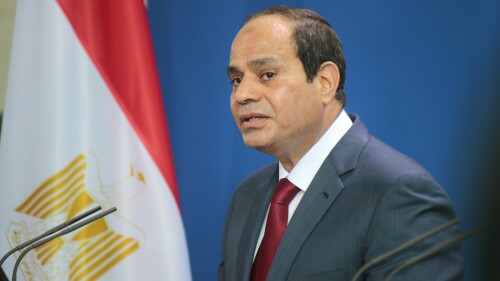In an official statement, White House Spokesman Scott McClellan stated that Hamas associates that deal with politics “may be members of organizations, but are not terrorists, versus terrorists, people who have blood on their hands.” Is this distinction enough to convince us that Hamas only makes wine and honey and provides social welfare? And does the Bush administration not know what Hamas really is?
Hamas is the Arabic acronym for “The Islamic Resistance Movement” (Harakat al-Muqawamah al-Islamiyya) and connotes heat, zeal and passion for a cause, the cause here being the destruction of Israel. Hamas was legally registered in Israel in 1978 by Sheikh Ahmed Yassin, who used to be the movement’s spiritual leader until 2004. On March 22, 2004, he was killed when IAF helicopters fired missiles at him as he was leaving a Gaza City mosque. Subsequently, Hamas’s leadership declared, “Sharon has opened the gates of hell and nothing will stop us from cutting off his head.” In August 1988, the Hamas Covenant was published and challenged the PLO and its claim to be the sole legitimate representative of the Palestinian people.
At the time, the US and Israel thought this would off-set the PLO, but this obviously back-fired. The first intifada acted as a major catalyst to Hamas’ creation as a branch of the Muslim Brotherhood in Egypt. Hamas is a theocratic movement dedicated to Islamic law, not a mythical Islam and democracy mixture, which is in effect a direct offshoot of the Muslim Brotherhood’s agenda, the same group responsible for assassinating Sadat.
Today, we are facing the possibility that Hamas will become a legitimate player within the Palestinian Authority (PA) despite the fact that since 2000, Hamas has been responsible for over 425 terrorist attacks. In the upcoming general elections scheduled for July, Hamas will be in position to gain between 35 to 40 percent of the 132 seats in the Palestinian Legislative Council. The Palestinian man on the street sees no problem with Hamas’ role or policies; the opposite is true as Ahmad Khadoura says, “I don’t think they [Hamas] will return to armed struggle. But if there is a need, why not? If it is necessary.” Moreover, the voices that are coming out of the Arab academia would you like us to accept Hamas and Hezbollah as legitimate political expressions even if they are armed. As Emad Gad, a political scientist at Cairo’s Al Ahram Center for Political and Strategic Studies, stated, “engagement with Hamas and Hezbollah is important, but it’s complicated and difficult because they’re still armed.”
Politics maybe the art of the possible, but incorporating Hamas will not make it possible for the PA to democratize; instead, it will allow terrorism to enter through the front door. The Bush administration would like to reform the PA and insert democratic elements. Co-opting Hamas is counter-productive to that goal. There is a reason that Hamas is on the State Department’s terrorist list; let us not forget why we put them there in the first place. They finance and implement terrorist activities; moreover, much of their fund-raising is done here in the States.
The simplest definition of democracy is “a form of government where all the state’s decisions are exercised directly or indirectly by a majority of its citizenry through a fair elective process.” The concept is so far-fetched for Hamas that a “fair elective process” is not even a part of Hamas’ lexicon. The use of force to pressure groups or individuals is the way that they operate.
As far as the Palestinian man on the street is concerned, Hamas is a social welfare contractor which provides education, warm meals and medical assistance; thus, it is so appealing. If Abbas is serious about reforming the PA and working with the US and Israel he and his Fatah party need to work towards providing a better social welfare program which will put Hamas out of business.
The bottom line is that the odds of Hamas changing its modus operandi and abandoning its mission--destroying the State of Israel--is non existent. That said, the tension that needs to be resolved is between Fatah and Hamas--in other words, between Islamists and secularists. And that will determine the character of the PA.
Asaf Romirowsky is a Campus Watch Associate Fellow for the Middle East Forum and the Israel Affairs associate for the Jewish Federation of Greater Philadelphia.
http://www.boston.com/news/world/middleeast/articles/2005/06/05/hamas_finding_fertile_ground?mode=PF







